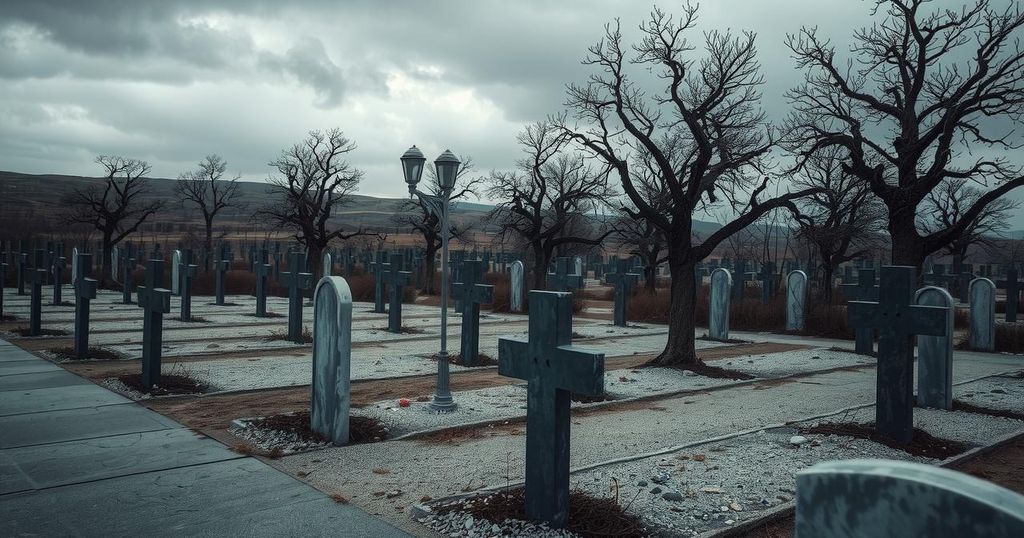Sudan Civil War: The Struggle for Survival Amidst Chaos in Khartoum

Sudanese troops have recaptured the presidential palace from the RSF in Khartoum as part of an ongoing civil war. The intensified fighting continues to devastate civilian lives, with gravedigger Abidin Durma reporting 25 to 50 bodies buried daily. Families are enduring immense trauma, with numerous civilian casualties and widespread anxiety. The conflict’s toll on communities suggests that peace remains a distant hope for many Sudanese citizens.
The ongoing civil war in Sudan has intensified, particularly around the capital, Khartoum, where Sudanese troops recently regained the presidential palace from the Rapid Support Forces (RSF). This military success represents a significant turning point in the conflict, as the army aims to reclaim control after being ousted two years ago. However, the civilian population continues to endure the brunt of the violence, leading to widespread death, destruction, and severe human rights violations.
As the Sudanese Armed Forces make advances, including reclaiming northern and eastern districts of the city, their latest offensive commenced just a week ago. The BBC was granted access to observe troops preparing for battle, exhibiting high morale and determination before making strategic gains against the RSF. A noteworthy development involved the destruction of an RSF convoy by the army, which utilized drones to target enemy vehicles effectively.
An emblematic figure in this devastating landscape is Abidin Durma, a gravedigger in Omdurman, adjacent to Khartoum. Mr. Durma reveals that he and volunteers are reportedly burying between 25 to 50 bodies daily, a reflection of the high civilian toll amidst the conflict. The cemetery he manages has noticeably expanded, filled with graves of those lost to the war, including victims of shelling and military attacks.
The civilian casualties stemming from this chaos are dire; Mr. Durma recounts handling bodies directly from hospitals as they come across the phone call. His commitment to his duty means he often forgoes sleep, working tirelessly until the last body is laid to rest. Notably, he reflects on the overwhelming presence of death, stating, “There is no time to sleep until the last body is buried.”
The grim realities are echoed in the experiences of families such as that of Abazar Abdel Habib, who lost his brother and sister-in-law to artillery fire. The emotional toll is palpable; the family must now navigate the future without their loved ones and strive to shield children from the horrors witnessed, while constantly being forced into survival mode amidst unrelenting violence.
Local women share their harrowing accounts of daily life under siege, with many teaching their children how to find safety during shelling. One mother recounted how her home was struck, causing injuries in her neighborhood. Concerns for children’s safety have become prevalent, leading to a pervasive atmosphere of fear and sadness in these communities.
While the potential for a cessation of hostilities in Khartoum looms if the army regains full control, the conflict’s broader impacts will likely resonate throughout Sudan for years. The war’s scars on the civilian populace are indelible, raising alarms over the future of a generation growing up amid violence and trauma.
The civil war in Sudan continues to impose severe suffering on its population, particularly in Khartoum, where recent military actions have resulted in significant casualties and destruction. Individuals such as Abidin Durma highlight the profound human cost involved, with countless lives lost in the ongoing violence. As the armed forces make territorial gains, the effects of war on civilians underscore the urgent need for peace in the region, as well as the long-lasting scars left behind that will affect the future generation.
Original Source: www.bbc.co.uk







